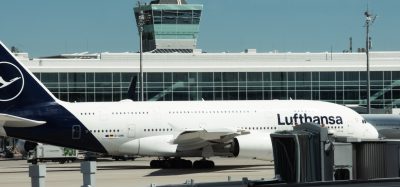Recession & constrained budgets impact national security
- Like
- Digg
- Del
- Tumblr
- VKontakte
- Buffer
- Love This
- Odnoklassniki
- Meneame
- Blogger
- Amazon
- Yahoo Mail
- Gmail
- AOL
- Newsvine
- HackerNews
- Evernote
- MySpace
- Mail.ru
- Viadeo
- Line
- Comments
- Yummly
- SMS
- Viber
- Telegram
- Subscribe
- Skype
- Facebook Messenger
- Kakao
- LiveJournal
- Yammer
- Edgar
- Fintel
- Mix
- Instapaper
- Copy Link
Posted: 14 April 2010 | A|D|S | No comments yet
Hugo Rosemont, security policy adviser for A|D|S, today addresses the Counter Terror Expo at London Olympia examining how the current state of the economy affects national security…
Hugo Rosemont, security policy adviser for A|D|S, the UK’s AeroSpace, Defence and Security trade organisation today addresses the Counter Terror Expo at London Olympia examining how the current state of the economy affects national security. The speech will propose potential solutions given the current economic climate and will also highlight that more could be done to harness the economic benefits of British-made security equipment exports. It will highlight that future efficiency savings or spending cuts could impact negatively on the UK’s national security capability.


Hugo Rosemont
During his speech Mr Rosemont will say:
“Surprisingly little attention has been paid to the impact that the recession is having on our security arrangements. There is a noticeable lack of public debate around the reality that the UK security industry possesses capabilities in counter-terrorism that are good for the economy. The UK security industry boasts leadership positions in many areas of counter-terrorism. A greater focus on the development and export of security equipment and solutions would help the UK to balance the economy away from consumer services.
“… [C]ontrary to some perceptions overall expenditure on the UK counter-terrorism effort has continued to rise steadily during this recession. [However,] constrained budgets pose risks for the security agenda. Whilst continued public sector investment has been a feature of the UK counter-terrorism effort to date, the constrained economy means that … the UK security community … is now bracing itself for potential cuts to defence and public security expenditure. For example, the Government has already been laying foundations for the UK Police Service to make significant savings after the election, including in many areas that touch upon counter-terrorism.
“This seems particularly likely when one considers that the Home Office manages more major projects than any other central civil government department. According to a recent report completed by the National Audit Office, the Home Office currently has a portfolio of over 30 major projects with an estimated total lifetime cost of £15 billion. Add to this that the President of ACPO [Association of Chief Police Officers] has been reported as saying that police budgets are likely to be subject to reductions of up to 20 per cent. Against this backdrop a second impact of the recession is that industry is urging Government to make changes to ensure that the national security market (including counter-terrorism) works more efficiently.
“The UK’s Science and Technology Strategy for Countering International Terrorism, published in August 2009, noted that the security market in the UK is more “fragmented” than many others, reflecting the range of departments, agencies, police forces and delivery partners involved in this work. There is now a general appreciation in the Home Office that the market is working sub-optimally. This is a welcome admission and industry has been encouraged that the Government sees ‘aligning interests’ of customers across the UK counter-terrorism and security market as a high priority. This is a top priority for industry.
In this context Rosemont continues: “… [T]he UK security industry, with the support of Government, has been placing much greater emphasis on the security export agenda. With industry expecting constrained security budgets at home, this means that many companies are increasingly looking overseas to win the business that is needed to ensure their survival. … The global security market is already estimated to be worth between $140-180bn per year and it has been reported that the UK Government thinks that this could double within the next decade. Recent figures issued by the UKTI DSO [UK Trade & Investment Defence & Security Organisation] suggest that despite the recession the UK security industry’s exports were valued at £1.36 billion last year and that this was an increase of more than 14 per cent on previous years. However, it is recognised that the UK security industry could be securing a greater share of this market. Lord West explained to the new Joint Committee on National Security Strategy recently that ‘We hold something like 19 per cent of the world defence market and we only hold four per cent of the security market.’
“Finally, it must be remembered that counter-terrorism is delivered at home and overseas. It is for this reason that any deeper cuts to the defence budget arising from the economic conditions will also affect the UK counter-terrorism effort. Whatever configuration the Strategic Defence Review may take, it is considered by industry to be vital that the next Government ensures that this is not used as a ‘cover for cuts’. Continued investment is needed even against the backdrop of efficiency savings and cuts if the UK is to reduce the damage that the economic downturn will inflict on the UK’s key defence and security capabilities.
“[The] Government could be clearer in public on the extent to which security measures are exposed to the economic conditions. … a lot can be done to make sure that Government and industry can cope with the impacts of the recession on national security [and] Government and industry [should] seize the opportunity to bring much more efficiency and coherence into play. Great strides in efficiency will be possible if we can reduce the levels of fragmentation within the security market and seek economies of scale across both “defence” and “security”. Notwithstanding the emergence of any efficiency drives, it is vital that both Government and industry remain very agile in the way in which they address terrorism threats and focus their investment accordingly.”

















